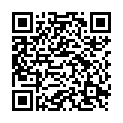|
|
|
| Module code: EE-K2-530 |
|
2V (2 hours per week) |
|
2 |
| Semester: 4 |
| Mandatory course: no |
Language of instruction:
German |
Assessment:
Term paper
[updated 30.06.2025]
|
EE-K2-530 Energy system technology / Renewable energies, Bachelor, ASPO 01.10.2012
, semester 4, optional course
EE-K2-530 Energy system technology / Renewable energies, Bachelor, ASPO 01.04.2015
, semester 4, optional course, course inactive since 27.10.2016
MAB.4.2.3.14 (P200-0004) Mechanical and Process Engineering, Bachelor, ASPO 01.10.2013
, semester 4, optional course, course inactive since 01.03.2022
MST.BLA Mechatronics and Sensor Technology, Bachelor, ASPO 01.10.2012
, optional course, course inactive since 13.10.2015
MST.BLA Mechatronics and Sensor Technology, Bachelor, ASPO 01.10.2019
, optional course, course inactive since 13.10.2015
MST.BLA Mechatronics and Sensor Technology, Bachelor, ASPO 01.10.2020
, optional course, course inactive since 13.10.2015
MST.BLA Mechatronics and Sensor Technology, Bachelor, ASPO 01.10.2011
, optional course, course inactive since 18.04.2016
|
30 class hours (= 22.5 clock hours) over a 15-week period.
The total student study time is 60 hours (equivalent to 2 ECTS credits).
There are therefore 37.5 hours available for class preparation and follow-up work and exam preparation.
|
Recommended prerequisites (modules):
None.
|
Recommended as prerequisite for:
|
Module coordinator:
N.N. |
Lecturer: N.N.
[updated 17.10.2011]
|
Learning outcomes:
After successfully completing this module, students will:
- be able to use biological systems as a reference for technical problems
- be able to expand design methodology processes with the help of biological solutions
- be able to transfer solutions from nature into technical designs
[updated 30.06.2025]
|
Module content:
- Visit to the botanical garden of Saarland University
- Analysis of biological systems (tree, bird, etc.)
- Research and current work in the field of bionics
[updated 30.06.2025]
|
Teaching methods/Media:
Handouts on the various topics
[updated 30.06.2025]
|
Recommended or required reading:
Das große Buch der Bionik, W. Nachtigall
[updated 30.06.2025]
|


